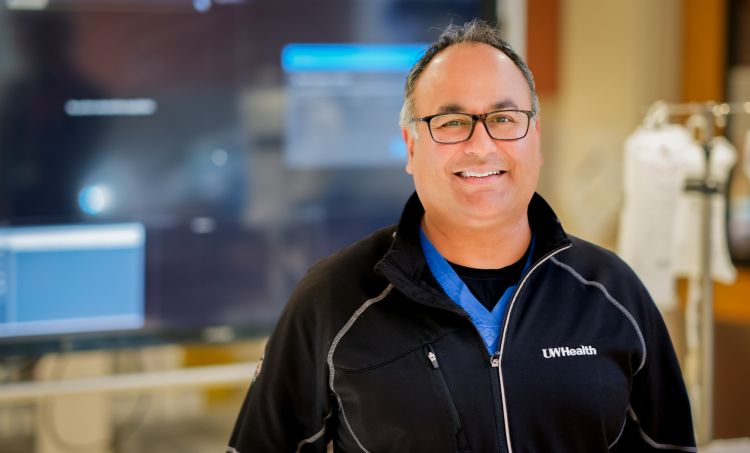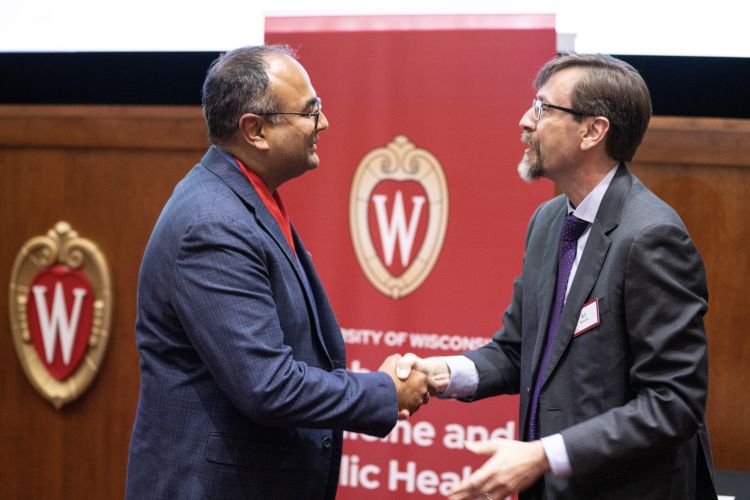Dr. Amish Raval named to Endowed Professorship in Cardiovascular Medicine
Philanthropy at work in the Department of Medicine

Amish Raval, MD, professor, Cardiovascular Medicine, has been named to a new Endowed Professorship in Cardiovascular Medicine thanks to a significant gift from a grateful patient family.
The endowment will provide salary support and discretionary funding to Dr. Raval for five years, boosting his cutting-edge research in regenerative cardiovascular medicine, which—as he explains in the video below—uses stem (or early) cells to help the heart heal itself.
A new generation of treatments
Interventional cardiologists like Dr. Raval use steerable catheters and advanced imaging techniques to diagnose and treat heart disease in patients who would otherwise not tolerate open heart surgery or its long recovery times.
Dr. Raval’s research uses heart catheters to more effectively deliver early cells to damaged heart muscle.
“We’ve figured out how to deliver early cells intravenously, but they end up landing in other tissues, like the lungs, spleen and so forth,” he says. “They don’t naturally home to the site of damage in the heart in sufficient numbers to rescue heart function.”
The catheters, however, can be fitted with little needle tips and used to inject cells into the damaged muscle through a peripheral artery or directly into the heart chamber.
This could be the start of a whole new generation of treatments designed to restore heart tissue and reverse heart failure.
Amish Raval, MD
From there, Dr. Raval and his team track the progress of the cells through imaging and related technologies like positron emission tomography (PET), looking for better ways to identify how many cells are retained by the muscle—a crucial step in ensuring effective treatment.
“This could be the start of a whole new generation of treatments designed to restore heart tissue and reverse heart failure,” says Dr. Raval.
The heart of the matter
Of course, the pathway to a new generation of treatments is long, complex one—and it would not be navigable without funding, which is why Dr. Raval is enthusiastic about the immediate impact the new gift will have.
“One of the first things we’ll be doing is hiring an additional scientist in the lab. That extra person allows us to literally accelerate everything we’re doing.”
The gift also provides support for a broader Innovation Fund in Cardiovascular Medicine Research, to be used in pursuit of research focused on regenerative cardiovascular medicine.
Dr. Raval believes this could have far-reaching impact, as it invites collaboration with colleagues in Cardiovascular Medicine, the rest of the department, and even beyond.
“Team science is the ticket,” he says. “It’s how we advance and create new innovations that are durable and lasting and have a meaningful impact.
I’m so enormously elated and grateful we have this opportunity.”
